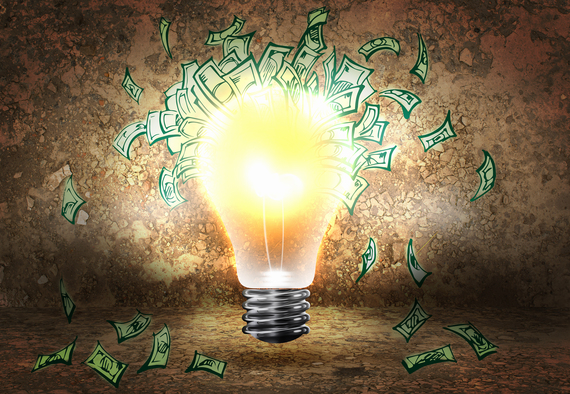You're wasting energy. It's not your fault; you probably don't even realize it. Or maybe you do, and you just don't care. That's okay.
What I do think you care about though, like most people, is saving money. And right now, you are wasting a lot of that as well.
The thing is, while we know that sustainable living, "going green," and reducing our energy consumption is the "right" thing to do, it seems like a whole lot of effort for something that doesn't, uh, affect us directly. People have enough to worry about in their day to day lives; the last thing they want to get involved in is something they assume only affects things on a larger, global scale-- rather than them personally.
However, reducing your energy consumption doesn't just mean saving the planet-- it also means saving money. And that's something most people want to get on board with.
If you want to fix the problem, you need to first be aware it even exists. And most people aren't aware of how much money, or energy, they are wasting every month.
It would probably help is they knew that as much as 20% of homeowners' electricity bills are wasted energy. Most businesses are now wasting 40% of their bill.
"A mistake many people make is misperceiving where the energy is being used," said Brennan Nelms, President of Eco Energy Management, a energy solutions company that helps businesses and homeowners reduce their electricity bills by up to 50%.
"People just assume their bills are sometimes higher because they had been using more electricity," Brennan explained. "Power is not the same as energy-- power is the amount of energy you use overtime. So to reduce costs you don't necessarily need to use less power, you just need to make sure the systems used to power your home-- lighting, heating, etc.-- are energy efficient."
When you don't see the actual numbers in front of you each month, it's less incentive to actually pay attention to what you are using or-- perhaps more importantly-- what you're wasting.
A major issue seems to be automatic bill payments. In this digital culture, it makes sense that we want everything fast and automatic. However, a recent study published by The Review of Economics and Statistics, found that those enrolled in automatic bill payment programs not only use more energy, but also pay more than those who aren't.
In 2012, the U.S. Government launched the Green Button Initiative from the Department of Energy, which offers a way for consumers to get energy usage data from their utility's website; the initiative was made in hopes of becoming more transparent with home and business owners.
"It's a three step process," said Nelms. "You need to have a way to know view the data of usage. Then you can analyze where and what is being wasted, and implement the solutions that fix the problem. Or, better yet, hire someone who can do it for you."
With lighting being one of the obvious, and biggest, uses of energy, it makes sense to for both business and homeowners to find ways to save money on their lighting.
One of the easiest energy saving solutions that has the biggest cost savings, especially for businesses that use fluorescent and incandescent lighting, is switching to LED lighting, which converts up to 90% of energy into light with only 10% waste. Several studies have revealed that switching to LED can not only help reduce costs and last longer, but they are also healthier for employees which, in turn, can increase productivity.
Another energy efficient solution gaining popular is the use of Smart Meters, devices that allow business and homeowners to monitor energy usage.
Whether you care about reducing carbon emissions or reducing costs, ultimately it doesn't matter. At this point, it doesn't seem to be so much a matter of why you should have to take steps toward more sustainable living as it is a matter of why you shouldn't.

